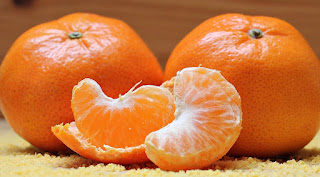What is the role of fruits and vegetables in human health?
Fruits and vegetables are an essential part of a healthy diet, as they provide important nutrients, vitamins, and minerals that are necessary for the proper functioning of the body. They also contain antioxidants that help protect against chronic diseases such as heart disease, cancer, and diabetes. Additionally, consuming a diet rich in fruits and vegetables can help to maintain a healthy weight and reduce the risk of obesity.
Fruits and vegetables benefits for health include reducing the risk of chronic diseases such as heart disease, stroke, and certain types of cancer. They are also high in vitamins, minerals, and fiber, which can improve digestion and overall well-being. Additionally, incorporating a variety of colorful fruits and vegetables into your diet can boost your immune system and promote healthy ageing.
Fruits for fiber and vitamins, vegetables for minerals and antioxidants, and lean proteins for amino acids and energy are all essential components of a healthy diet. So, make sure to include a variety of fruits, vegetables, and proteins in your meals to keep your immune system in top shape.
Which fruit and vegetable helps to boost immunity?
Some fruits that are known to boost immunity include citrus fruits like oranges and grapefruits, as well as berries like strawberries and blueberries. These fruits are rich in vitamin C and antioxidants, which can help strengthen the immune system and protect against infections.
Fruits high in vitamins A and E, such as mangoes and papayas, also have immune-boosting properties. Incorporating a variety of these fruits into your diet can help keep your immune system strong and healthy. Additionally, it's important to remember that a balanced diet with a variety of nutrients is key to overall health and immunity.
Vegetables that are high in vitamin C, such as bell peppers, broccoli, and Brussels sprouts, can help boost immunity. Vitamin C is an antioxidant that helps protect cells from damage and supports the immune system's function. Including these vegetables in your diet can also promote healthy skin and reduce inflammation.
vegetables and fruits are good for minerals and antioxidants
Leafy greens like spinach and kale, as well as colorful vegetables like bell peppers and tomatoes, are great sources of minerals and antioxidants. Additionally, cruciferous vegetables such as broccoli and cauliflower also provide a wide range of health benefits.
When it comes to fruit, some good sources of protein and amino acids include bananas, avocados, and guavas. However, it's important to note that fruits generally contain lower amounts of protein compared to vegetables and animal-based foods.
Vgetable and fruit are good for vitamin A
Mangoes are a great source of vitamin A, with one cup providing over 100% of the recommended daily intake. Other fruits high in vitamin A include papayas, cantaloupe, and apricots.
Sweet potatoes are an excellent source of vitamin A, with one medium-sized sweet potato providing over 400% of the recommended daily intake. Other vegetables high in vitamin A include carrots, spinach, and kale.
Vegetables and fruits are good for vitamin B and B complex
Bananas are a good source of vitamin B6, which is important for brain function and the production of red blood cells. Other fruits high in various B vitamins include avocados, oranges, and strawberries.
Leafy greens like spinach and kale are great sources of B vitamins, particularly folate which is important for cell growth and development. Other vegetables high in B vitamins include broccoli, asparagus, and Brussels sprouts.
Vegetables and fruits are good vitamin c
Citrus fruits such as oranges, grapefruits, and lemons are excellent sources of vitamin C. Kiwis, papayas, and strawberries are also high in this essential nutrient. Adequate intake of vitamin C is important for immune function and skin health.
Vegetables and fruits are good vitamin D
Unfortunately, fruits are not a good source of vitamin D. This essential nutrient is primarily obtained through exposure to sunlight and can also be found in fatty fish, egg yolks, and fortified foods such as milk and cereal.
While no vegetable is a significant source of vitamin D, some varieties like mushrooms and spinach contain small amounts. However, it's important to note that the best way to get enough vitamin D is through safe sun exposure or by taking supplements.
Vegetables and fruits are good vitamin E
While fruits are not a significant source of vitamin D, there are several fruits that are rich in vitamin E. Some examples include mangoes, avocados, kiwis, and papayas. Vitamin E is an antioxidant that helps protect cells from damage and supports immune function.
Spinach is a great source of vitamin E, along with other leafy greens like kale and Swiss chard. Incorporating these vegetables into your diet can help increase your intake of this important nutrient.
Vegetables and fruits are good vitamin K
If you're looking for a fruit that is high in vitamin K, look no further than kiwis. In addition to being a good source of vitamin E, kiwis are also packed with vitamin K, which plays a key role in blood clotting and bone health.
Leafy green vegetables such as spinach, kale, and collard greens are excellent sources of vitamin K. Adding these vegetables to your diet can help improve bone density and reduce the risk of fractures.












No comments:
Post a Comment